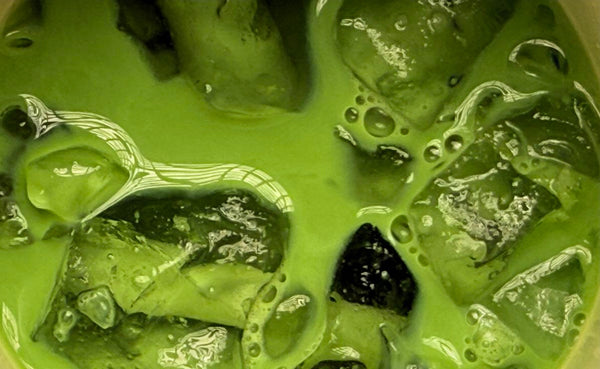PCOD, which stands for Polycystic Ovarian Disease, is a common hormonal disorder among women. It affects the ovaries and disrupts the normal functioning of the reproductive system. PCOD and PCOS, or Polycystic Ovary Syndrome, are often used interchangeably, but they have some key differences.
Understanding PCOD
PCOD is characterized by the presence of multiple immature or partially mature eggs in the ovaries. These immature eggs accumulate and give rise to cysts on the ovaries, which can lead to hormonal imbalances, such as excess secretion of male hormones (androgens). These imbalances can disrupt the menstrual cycle, making it irregular or absent altogether. PCOD affects about 1 in 10 women of reproductive age.
Women with PCOD may experience a range of symptoms, including weight gain, acne, excessive hair growth, and rarely fertility issues. The condition can also increase the risk of developing type 2 diabetes, high blood pressure, and heart disease.
What is PCOD?
PCOD is a hormonal disorder in which the ovaries develop immature eggs, leading to irregular menstrual cycles and other symptoms.
Diagnosis of PCOD is typically based on a combination of symptoms, physical examination, and blood tests to measure hormone levels. An ultrasound may also be used to visualize the ovaries and detect the presence of cysts.
The Science Behind PCOD
PCOD is believed to be caused by a combination of genetic and environmental factors. While the exact cause is unknown, researchers believe that insulin resistance and hormonal imbalances play a significant role in its development.
Studies have shown that women with PCOD have higher levels of androgens, which are male hormones that can interfere with the normal function of the ovaries. Insulin resistance, a condition in which the body's cells do not respond effectively to insulin, can lead to elevated insulin levels in the blood, further exacerbating hormonal imbalances.
PCOD vs PCOS: The Key Differences
Although PCOD and PCOS are closely related, they have distinct differences.
Understanding these differences is crucial in determining the appropriate treatment and management strategies for individuals affected by these conditions.
|
Feature |
PCOD (Polycystic Ovarian Disease) |
PCOS (Polycystic Ovary Syndrome) |
|
Definition |
Presence of multiple cysts on the ovaries due to immature eggs. |
A broader hormonal disorder with various symptoms and imbalances. |
|
Main Symptoms |
Irregular or absent periods, excessive hair growth, acne, weight gain, skin tags, darkening of skin, male-pattern baldness. |
Irregular menstrual cycles, metabolic disturbances (insulin resistance, obesity), fertility issues. |
|
Hormonal Imbalance |
Yes, but typically can be managed with lifestyle changes. |
Significant hormonal imbalances including high androgens and insulin resistance. |
|
Metabolic Disturbances |
Less commonly associated with insulin resistance and obesity. |
Commonly associated with insulin resistance and obesity. |
|
Fertility |
Can cause difficulties with ovulation but often treatable with lifestyle changes. |
Significant fertility issues due to irregular ovulation and hormonal imbalances. |
|
Genetic Factors |
Family history may play a role, but not as strongly linked as PCOS. |
Strong familial link; genetic variations in hormone regulation and insulin sensitivity. |
|
Environmental Triggers |
Poor lifestyle choices (high-calorie diet, lack of exercise). |
Poor lifestyle choices and exposure to endocrine-disrupting chemicals. |
|
Physical Symptoms |
Same as main symptoms: irregular periods, excessive hair growth, acne, weight gain. |
Same as main symptoms: irregular periods, insulin resistance, obesity. |
|
Emotional Symptoms |
Mood swings, irritability, depression, anxiety, stress. |
Mood swings, irritability, depression, anxiety, stress. |
|
Sexual Health |
Decreased libido, potential impact on intimate relationships. |
Decreased libido, challenges with intimacy, potential fertility issues. |
|
Pregnancy Challenges |
Can have successful pregnancies with appropriate care and lifestyle changes. |
Higher risk of gestational diabetes, preeclampsia, miscarriages; requires close medical monitoring. |
|
Treatment |
Lifestyle modifications, balanced diet, exercise, stress management. |
Lifestyle modifications, medical treatments (e.g., oral contraceptives, fertility treatments). |
|
Medical Intervention |
Less frequently needed; primarily lifestyle changes. |
Often requires hormonal medications to induce ovulation and regulate periods. |
Lifestyle Changes & Home Remedies to Cure PCOD
While PCOD cannot be cured, certain lifestyle changes and home remedies can help manage the symptoms and improve overall well-being. These may include maintaining a healthy diet, regular exercise, stress management, and herbal supplements.
Maintaining a balanced diet and regular exercise are crucial for managing PCOD symptoms. Consuming nutrient-rich foods like fruits, vegetables, whole grains, and lean proteins while avoiding processed foods, sugary snacks, and excessive caffeine can help regulate hormones and reduce inflammation. Regular physical activity, including cardiovascular exercises, strength training, and flexibility exercises, aids in weight management, improves insulin sensitivity and helps regulate menstrual cycles.
Conclusion
In conclusion, PCOD is a common hormonal disorder that affects many women. While PCOD and PCOS are often used interchangeably, they have distinct differences. Understanding the causes, symptoms, and impact of PCOD is crucial for both diagnosis and effective management. By making lifestyle changes and seeking appropriate medical care, women with PCOD can lead healthy and fulfilling lives.



























 DOWNLOAD NOW
DOWNLOAD NOW
